- Home
- News
- Study in Bulgaria
- Projects
- Sugestopedija
- Skopje Creative Point is Officially Opening!
- Cultart PRO 2025
- Cultart with a second edition in 2025 – Cultart PRO
- Cultart PRO supports excellence in cultural management in Europe
- Applied Arts Skopje, Photography – Day 1 | The MARATHON
- Applied Arts Skopje, Photography – Day 2 | Orienteering
- Applied Arts Skopje, Photography – Day 3 | FRIENDLY MATCH
- Applied Arts Skopje, Photography – Day 4 | BASE CAMP
- Applied Arts Skopje, Photography – Day 5 | HOME RUN
- CULTART project
- Coming Soon: A Cultural Revolution Begins!
- Cultart Book
- CultArt in the News
- Cultart Cities
- Cultart News
- CultArt in the News
- Festivals Programme | Day 5
- Festivals Programme | Day 3 & 4
- Festivals Programme | Day 1 & 2
- Performing Arts Programme | Day 3 & 4, and 5
- Performing Arts Programme | Day 1 & 2
- Skopje Applied arts programme | Day 5
- Skopje Applied arts programme | Day 4
- Skopje Applied arts programme | Day 3
- Skopje Applied arts programme | Day 2
- Skopje Applied arts programme | Day 1
- Applied art program in Skopje organized by Cultart
- Visual Arts Programme | Day 5
- Visual Arts Programme | Day 3 & 4
- Visual Arts Programme | Day 1 & 2
- Updates for the Bulgarian candidates and the Festivals Programme training
- Design & Architecture Programme | Day 5
- Design & Architecture Programme | Day 3 & 4
- Design & Architecture Programme | Day 1 & 2
- The Group of Participants in the Design and Architecture Programme
- STEM Education Platform (SAPPHIRE)
- SMART SCHOOL
- About Us
- Areas
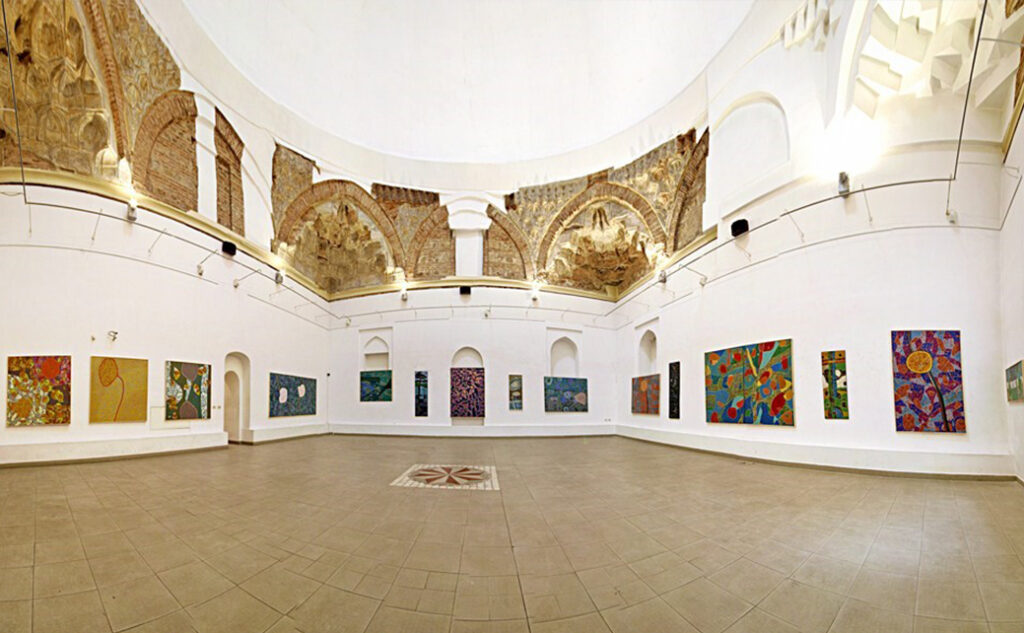

Applied arts program in Skopje organized by Cultart (Cultart, Cultural Management Academy)
25 | 03 | 2023
As we have already informed, at the end of 2022, the new practical program in cultural management, initiated to fill the gaps in the academic educational programs organized by the Cultart Academy, began to be implemented, and will also last until July 2023.
The objectives of the Cultart Academy are trainings that will be delivered to five international groups of young specialists from Austria, Italy, Greece, Bulgaria and North Macedonia. The whole range of creative industries will be covered in 5 programmes: festivals, visual arts, performing arts, design and architecture, applied arts. Each program will take place according to the schedule in one of the 5 partner cities:
• Design and Architecture in Lecce, Italy, #discoverdesign from 21 to 25 November 2022
• Visual Arts in Austria, Vienna, #unitevisualarts from 19 to 25 January 2023;
• Applied arts in Skopje, North Macedonia, #combineappliedarts from March 27 to 31, 2023
• Performing Arts in Ioannina, Greece, #enjoyperforming from May 8 to 12, 2023;
• Festivals in Plovdiv, Bulgaria, #sharefestemotions, July 2023
During the 5 programs, the international groups of cultural managers will meet speakers, experts and practitioners, they will be mentored on the 10 specified modules of the Cultart program – cultural innovations, business and entrepreneurship, management and administration, project development , fundraising, leadership, conflict management, media and communication.
Essential to Cultart programs are the Cultart Case Study Challenges. Groups will have the chance to participate in the actual working process of a cultural organization in each program. The 5 case study organizations will outline their main tools and models, their current work and projects and give a specific ‘challenge’ to the groups.

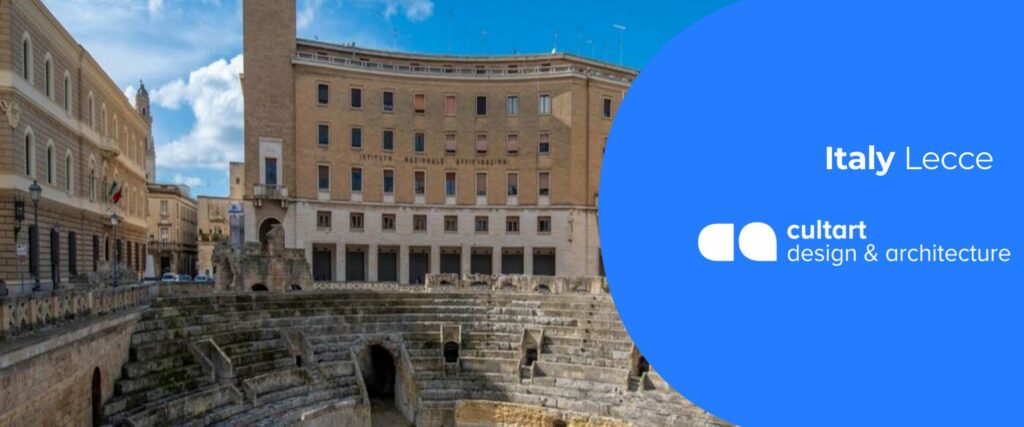
ITALY, Lecce, the first program in the field of design and architecture #discoverdesign took place from 21 to 25 November 2022
https://cultart.eu/open-call-lecce/
Cultural organization in Italy: CNA LECCE
Case Study Study Institution: Valarie Design Studio
“What drives us is our passion for design, the idea of merging modern lines and local craftsmanship” Design outside the large productive area is closely related to the artisanal production of the territories based on knowledge and experience developed and shared by communities over time. Today’s great processes of social transformation require a process of critical rereading of modernity, of rediscovery of territories and their resources. Researchers, designers and intellectuals working to build alternatives to globalization committed to a new approach to production and design that values time. “Resisting the ‘slow project’ that conveys identity cultures to the frenetic rhythms imposed by industry is part of a wider vision of sustainable development that can restore the future of the manufacturing fabric that is still deeply rooted in the territories of our country.” The goal is to slow down, slow down the pace of production and slow down the pace of rework to bring back definitive joint projects. “The reflexive time of re-elaboration replaces the frenetic time of industry, the stable objects of identity are opposed to the transitory objects of consumer society.” (S. Folesa).
Starting from the knowledge and analysis of the ancient local practice of craftsmanship, the participants will try to understand the reasons that led to the slowdown and stagnation of this activity, in order to then reconsider its applications and devise forms of regeneration and production even in sectors which are not the traditional ones.
Case study and trainers
Valarie Design Studio is a design studio founded by architects Domenico Sasso, Federica Russo and Nicolo Levanski with an interest in design and a focus on quality.
Before taking care of a given project, the Valarie Design Studio delivers to the client consulting services, a series of services of the team of various professionals working together with the architects, who evaluate the work from every point of view, including the economic and financial point of view, strategic management, relationships with local suppliers.
Valarie Design Studio wants to act as a bridge between the need expressed by an international clientele and the potential offered by the territory and the Italian heritage.
AUSTRIA, Vienna, at the end of January 2023, in the period from 19 to 26, the second program session of the cultural Academy on the topic of visual arts #unitevisualarts was held
https://cultart.eu/open-call-vienna/
Culture partner in Austria: Clearly Culture©
Case study institution: Kunsthalle Wien
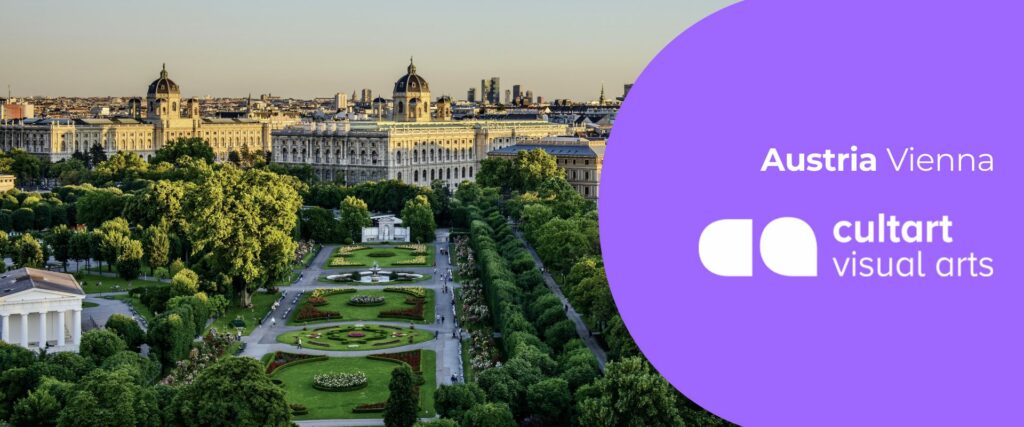
Clearly Culture brings together international experts in cultural management, literature, academia, architecture and urban development, social inclusion and intercultural communication, cultural diplomacy, fine and performing arts and community engagement. It specializes in cultural and social initiatives that serve inclusion, diversity and dialogue. The Clearly Culture team is a network of distinguished professionals who work in their fields independently and unite for common projects and goals.
Clearly Culture develops curricula and conducts a series of workshops for the International Organization for Migration, universities in Austria, Greece, Germany, Bulgaria, Serbia, Estonia and the United States. It cooperates with European ministries of culture and education, municipalities and capitals of culture. CC: is the co-founder of the Cultural Management Program at the University of Vienna and the Cultural Management Academy of the Goethe Institute Sofia Bucharest Thessaloniki. In the CULTART project between Austria, Bulgaria, Greece, Italy, North Macedonia, responsible for the curriculum in the 5 cities of Lecce-Vienna-Plovdiv-Ioannina-Skopje and for the Academy performed in Vienna.
Case study and trainers
Lecturers: Leonie Hodkevitch clearly culture, University of Vienna
Monika Herzig Indiana University, ‘sheroes’
Elisabeth Mayerhofer City of Vienna
Doug Borwick Arts Engage
Periklis Chatzinakos Mamagea, Thessaloniki
Ina Ross Germany/ India
fordewind architecture Vienna-Sofia
Ular Mark Tallinn
Dee Boyle-Clapp University of Massachusetts
Patrik Zak Trencin European Capital of Culture 2026
Peter Schweitzer University of Vienna, Wittgenstein Preis
Cay Urbanek Volkstheater Vienna
Topics
Living City – Interaction between Cities and Cultural/Social
Organizations and Projects – Sponsoring and EU Projects –
Audience Development – Case Study on Positioning, Guidance
System, and Visitor Information Strategy in Kunsthalle Wien
Kunsthalle Wien is a space that comprises the broad diversity of international contemporary art and its related contemporary discourses. To this effect, Kunsthalle Wien has developed innovative exhibition and communication formats. As an open forum, it is not just a collection, but a space for established art and negotiation of current issues and future developments. In the beginning, Kunsthalle Wien was a makeshift structure. The initially controversial yellow container structure not only shaped the Viennese cityscape, but also changed the local art and exhibition scene. In May 2001, Kunsthalle Wien moved into the Museumsquartier. Kunsthalle Wien is dedicated to art and its relations to
social change. It produces exhibitions, researches art practices, grounds its knowledge of international contemporary art in and for Vienna, and advocates for the use of artistic thinking in the wider public sphere.
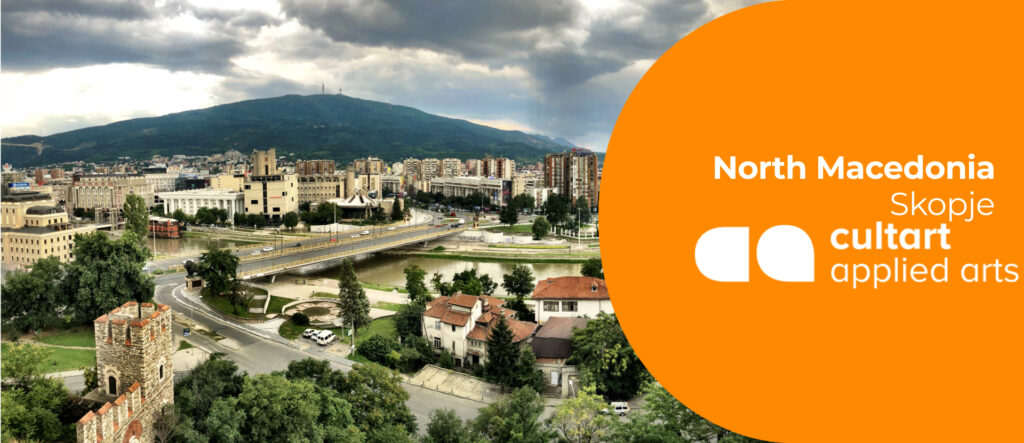
REPUBLIC OF NORTH MACEDONIA, Skopje will host the applied art program #combineappliedarts from
March 27 to 31, 2023
https://cultart.eu/open-call-skopje/
Cultural organization in North Macedonia: “Edu Centar” Association
Case study institution: National Gallery of North Macedonia
The workshop is focused on the topic of organizations for applied art, as a key incentive for the cultural industry and the profile of the city of Skopje. During the preparatory phase, Edu Center chose one particular cultural organization that has been organizing large-scale exhibitions for at least 5 years and is now suffering losses due to the COVID-19 crises. (eg Society of Fine Artists of Macedonia, Youth Cultural Center, Museum of Contemporary Art, National Gallery, Chamber of Crafts – Skopje, smaller private galleries and centers for contemporary art, etc.).
Together with the stakeholders of those institutions, Edu Center will create a portfolio of case studies, which will outline its main problems, challenges and losses after the COVID-19 crisis: reduced audiences, austerity measures, reduction of human resources, losses of box office, financing and marketing challenges. These first resources of information will be the basis of the joint activities of all partners and participants during the five-day sessions.
This innovative approach to participants gives us the chance to strengthen the practical involvement of young people in the real creative and cultural sector, to form a group of emerging multicultural professionals.
Case study and trainers
The group will meet face-to-face with a representative museum, in this case the National Gallery, a partner in the project, who will give a presentation and outline the main losses, challenges and difficulties their institution has suffered from the COVID crises. Participants will be introduced to the curriculum modules, the main tools and approaches of the program.
Lecturers:
Dr. Dita Starova Qerimi, director of the National Gallery
Robert Jankuloski, full professor at the department of photography at the “Europa Prima” International University, founder of the Macedonian Center for Photography
Monika Moteska, fine artist, member of the middle generation of contemporary Macedonians artists with a serious influence on the creation of the regional art scene in the 21st century who work with painting, photography, video and installations
Aleksandar Velinovski, founder and chief manager of the cultural center “Public Room”,
Ana Frangovska, PhD student at Singidunum University, Faculty of Media and communications, senior curator at the National Gallery
Susana Minovska, master of graphic design, responsible person for public relations and marketing at the National Gallery of North Macedonia

During the 5-day workshop, the youth group will be divided into 5 groups of 5 people each. Each group will receive a model for cultural management – aspects of knowledge: audience management, marketing, fundraising, human resource management, media communication, etc. This model will be their main tool for work. Through various exercises, role-plays, brainstorming and a joint training session, each group of participants will be asked to come up with a business plan and strategy to solve the problems of the case study of the institution of applied arts.
According to the program of the project in Skopje, on the last day of the session, March 31, 2023, from 10:00 a.m. to 1:00 p.m., case studies of the five groups will be presented in the Multimedia Center Mala Stanista. We use this opportunity to invite the media to attend the presentations, to use the opportunity to convey the experiences of the project participants to a wide audience through interviews.
Remaining for May and July 2023 are the performing arts programs in Ioannina, Greece, #enjoyperforming May 8-12, 2023 and festivals in Plovdiv, Bulgaria, #sharefestemotions, July 2023.
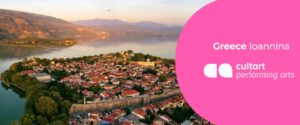

The Cultart project is within the Erasmus+ program, Youth – Cooperation Partnerships, administered by the Center for Human Resources Development – National Agency within the Erasmus+ program with the support of the European Union. The holder of the project for the Republic of North Macedonia is the Education Association Edu Center Skopje managed by Iliyana Atanasova, project manager.
The EU has strong and vibrant cultural and creative industries. These are not only essential for Europe’s cultural diversity, but also for strengthening social cohesion and increasing Europe’s attractiveness internationally. The cultural and creative sectors are important in their own right in terms of their economic impact and employment. They also drive innovation across the economy, contribute to numerous other channels for positive social impact (well-being and health, education, inclusion, urban regeneration)
Edu Center, Skopje in cooperation with the National Gallery of the Republic of North Macedonia

